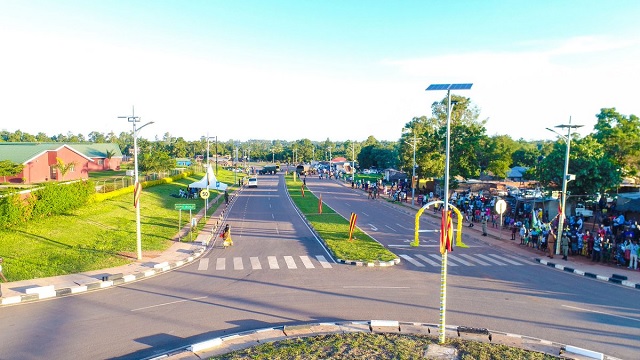
Kampala, Uganda | Julius Businge | “Urbanisation has become one of the most pressing development challenges of the 21 st century. It could be one of the biggest drivers of economic growth but can also become a driver of inequality and marginalization.”
That rephrased quote is from one of the documents posted on the UN agency, the United Nations Capital Development Fund (UNCDF) website, having operations in Uganda.
The agency has recently launched the Local Economic Acceleration Partnership (LEAP) programme in partnership with the Government of Uganda represented by Makerere University.
Broadly, the programme aims to contribute to solutions to the growing number of challenges in cities and municipalities of Uganda.
Launched on Oct.25 at the College of Business and Management Sciences, Makerere University, Dmitry Pozhidaev, the UNCDF’s head for Uganda, said they are already figuring out mutual understanding with key stakeholders as they begin to rollout the programme.
Supported by Cities Alliance, the programme builds on the first phase of the Joint Work Programme (JWP) on Equitable Economic Growth in Cities, implemented by UNCDF and Cities Alliance in 2016-2018 in Mbale and Gulu municipalities.
Pozhidaev said that LEAP complements the JWP programme by focusing on the required financing of public goods and services that contribute to equitable economic growth.
The LEAP programme is expected to identify major drivers of revenues and expenditures at the city level which would include identifying borrowing capacities. It will also set up a facilitated dialogue with domestic and international private sector representatives at the city level on investment requirements and opportunities.
Pozhidaev said that the programme is in line with the growing demand for municipal services and infrastructure, which he blamed on the ever increasing population.
Uganda’s population is today estimated at around 44.2 million people according to the UN and is projected to reach 80 million by 2030 and 120 million by 2050.
Pozhidaev said that despite the efforts being undertaken by the government to fund cities and municipalities to deal with the challenges at hand, this has proved not to be enough and needs concerted effort.
“The challenge is complex and so the solution too must be complex,” he said.
Going forward, he said the initiative will empower local governments to take sustainable development goals seriously and showcase their implementation by using the UN platform.
It will also see them learn and share urban related experiences and opportunities with other institutions beyond Uganda.
According to the UNCDF data, almost half of the world’s urban dwellers reside in settlements of less than 500,000 inhabitants. The agency says that the future development of the LDCs and their ability to meet the SDGs, now depends significantly on how well urbanization is managed in LDC cities and towns.
Speaking on behalf of the Vice Chancellor for Makerere University, Prof. Umar Kajumba, said cities generate a lot of economic growth once the policies to govern them are well implemented.
“We must embrace planned cities and well thought about cities,” Kajumba said. He said implementation of policies must involve the people.
He said 64% of the University’s staff have PhDs that can help in the implementation of programmes like LEAP.
 The Independent Uganda: You get the Truth we Pay the Price
The Independent Uganda: You get the Truth we Pay the Price



